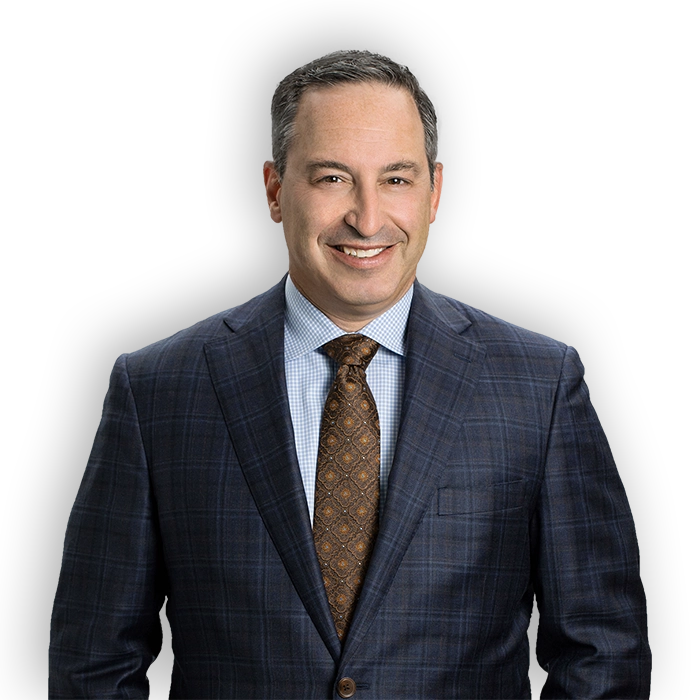From Coast to Coast, SNFs Face Criminal Investigations for COVID-19 Response

On September 15, 2020, the Massachusetts Attorney General charged leaders of Soldiers’ Home in Holyoke, a 247-bed long-term nursing care facility, with criminal neglect for their role in a COVID-19 outbreak.[1] Soldier’s Home is the first criminal case brought against nursing home personnel for their COVID-19 response, but there are similar criminal investigations pending across the country. Criminal prosecution for substandard patient care is relatively rare. It is particularly alarming when such actions are initiated against frontline healthcare providers, who are making difficult patient care decisions, during an unprecedented global pandemic. These developments demonstrate that nursing homes must be prepared to defend their decision-making processes and infection control practices to avoid criminal liability.
I. COVID-19 Outbreaks in SNFs
Nursing homes across the country have been severely impacted by the COVID-19 pandemic. The resident population of a nursing home is particularly vulnerable, with many frail seniors who require assistance with basic activities of daily living (e.g., bathing and dressing) and 24/7 medical supervision. Most nursing homes also promote a congregate living lifestyle, where residents have roommates, family and friends are encouraged to visit, and residents frequently come and go for appointments and other activities. The introduction of COVID-19, which is highly infectious and can spread through asymptomatic and pre-symptomatic individuals, can be catastrophic.
Massachusetts long term care facilities have been hit particularly hard by the virus. There have been approximately 6,000 deaths in Massachusetts long term care facilities—constituting nearly 2/3 of the virus-related deaths in the commonwealth. Adjusted for population, Massachusetts has the second highest rate of COVID-19 nursing home deaths in the country.[2] More than 375 facilities have reported at least one case of the virus, and approximately 25,000 residents and workers in Massachusetts long term care facilities have been stricken by the virus.[3]
Meanwhile, federal, state, and local healthcare government agencies were slow to provide consistent and helpful clinical guidance, because much less was known about COVID-19 relative to the diseases SNFs ordinarily treat. Testing was not readily available. Numerous staffing obstacles created a national shortage of able-bodied nurses and nursing assistants. Many nurses could not work because they demonstrated symptoms of COVID-19, had to care for sick or vulnerable family members at home, or did not have childcare when schools closed. Nursing homes also had difficulty obtaining medical supplies, including personal protective equipment. Hospital supplies came first and SNFs second in the new pandemic. All of these factors proved to be a catastrophic combination as deaths in nursing homes accounted for more than 40% of all U.S. COVID-19 deaths.
II. Criminal Investigations
Even as nursing homes were actively responding to COVID-19 outbreaks, many state and federal criminal investigations ensued. For example, in California, the Attorney General’s Bureau of Medi-Cal Fraud and Elder Abuse (“BMFEA”) began investigating several nursing homes, following media reports of severe COVID-19 outbreaks.[4] Special agents of the criminal division submitted numerous requests for evidence of infection control policies, implementation of clinical guidance (which was constantly changing), information about staff and resident infections, and documentation regarding transfers and discharges of COVID-19 residents. Some local county district attorneys also initiated investigations, coordinating the submission of subpoenas to all nursing homes within their respective counties.[5]
In Massachusetts, the U.S. Attorney’s Office and the state Attorney General’s Office have reputations for aggressively pursuing health care fraud investigations. Last year, the Massachusetts Attorney General announced settlements in seven cases involving skilled nursing facilities where the office alleged substandard care or regulatory violations.[6] Thus, in the wake of the pandemic, it was not surprising that Massachusetts state and federal regulators launched investigations into long term care facilities.[7] In late July, several Massachusetts SNFs reported that HHS-OIG agents made unannounced visits, leaving business cards and inviting staff to contact them with any concerns.
These states were not alone. In Pennsylvania, a nursing home that experienced a severe COVID-19 outbreak was raided by the Federal Bureau of Investigation.[8] Investigators were executing a search warrant for evidence relating to infection control practices. In Connecticut, state investigators contemplated a criminal probe of a volunteer nurse who may have worked in a nursing home despite being exposed to the coronavirus.[9] In New Jersey, the Attorney General announced a statewide investigation of nursing homes and long-term care facilities, focusing on facilities that had a large number of coronavirus deaths, inadequate staffing, and poor health inspections.[10]
III. Soldier’s Home
Soldier’s Home is the first criminal case brought against leadership of a nursing home for their role in a COVID-19 outbreak. The criminal indictment follows an independent investigation that was conducted at the request of the Governor of Massachusetts.[11] Established in 1952, the Holyoke facility is one of two long term care centers that Massachusetts operates for veterans. In the spring of 2020, at least 76 veterans at the facility died from COVID-19, and 84 veterans and more than 80 staff members also contracted the virus.
According to the independent investigation, the most significant error on the part of Soldier Home’s leadership team was combining two locked dementia units, which had a mix of COVID-19 statuses (i.e., positive, symptomatic, and asymptomatic residents), crowding 40 veterans into a space meant to hold 25, even though some veterans from each unit had already tested positive for the virus. The report faulted Soldier’s Home for this “catastrophic” decision, exposing asymptomatic veterans to those stricken by the virus, rather than isolating the veterans who were already infected. The investigation concluded that this decision was approved by the facility’s superintendent and at least acquiesced to by the medical director, though both leaders would not admit to being involved in the decision-making process. Other substantial errors included delays in isolating patients, delays in testing residents who were showing symptoms, delays in closing common spaces, rotating staff among COVID (+) and (-) units, inconsistent use of personal protective equipment, and recordkeeping and documentation failures. According to the investigation, these errors likely contributed to the scope of the outbreak. The report also concluded that the Soldier’s Home superintendent, Bennett Walsh, was “not qualified to manage a long-term care facility”; Mr. Walsh’s background was in the military, and he was reported to have obtained the position through political connections.
IV. Theories of Criminal Liability
Mr. Walsh and Dr. David Clinton, the facility’s medical director, were both charged under a Massachusetts criminal statute that punishes caretakers who cause harm to elderly individuals.[12] This law provides that a caretaker who “wantonly or recklessly permits serious bodily injury to [an] elder or person with a disability” can be imprisoned for up to ten years, fined up to $10,000, or both. “Caretaker” is defined as a “person with responsibility for the care of an elder person . . .” in a variety of settings.[13] “Serious bodily injury” is an injury which “results in a permanent disfigurement, protracted loss or impairment of a bodily function, limb or organ, or substantial risk of death.” Interestingly, even though the independent report concluded that the facility’s Director of Nursing was also involved with the decision to combine the two dementia units, this individual was not charged.
This law is familiar to Massachusetts health lawyers but there are very few reported court decisions interpreting the statute. Indeed, the only reported case directly addressing the charge at issue was Commonwealth v. Cruz, 88 Mass. App. Ct. 206 (2015). In Cruz, the defendant, the caretaker for his mother, was charged with criminal neglect after his mother died from sepsis as a result of sitting in her feces and urine for several weeks. The evidence of neglect was overwhelming, and the Appeals Court affirmed the conviction. Here, no one can dispute that the Soldier’s Home circumstances were tragic. However, to sustain a criminal conviction, the government will have to prove that the defendants committed “wanton or reckless conduct,” which, in this context, means “intentional conduct, by way either of commission or of omission where there is a duty to act, which conduct involves a high degree of likelihood that substantial harm will result to another.”[14] While the defendant need not intend that his or her conduct will result in substantial bodily injury, the government must prove more than a mistake of judgment or even gross negligence.[15] The standard is objective: what would a reasonable person do under the circumstances? A jury will have to determine if the conduct of these SNF executives—in particular, bringing asymptomatic veterans in close contact with infected veterans—rises to the level of “wanton or reckless conduct” under the law.
Other states have similar criminal statutes, targeting wanton or reckless care of elderly persons. For example, in relevant part, California’s Penal Code section 368 provides that a caretaker who “willfully causes or permits the person or health of the elder or dependent adult to be injured, or willfully causes or permits the elder or dependent adult to be placed in a situation in which his or her person or health is endangered,” is punishable by imprisonment for up to seven years, a fine up to $10,000, or both, depending on the facts and circumstances of each case. Thus, it is possible that the Soldier’s Home indictments are a model of cases to come.
V. Defending a Response to an Outbreak
The unavoidability of COVID-19 outbreaks is an issue yet to be determined. Indeed, studies conducted months after the COVID-19 pandemic began have found that there was no correlation between having a COVID case and a facility’s star rating on the Five-Star Quality Rating System, prior history of infection violations, and “whether it was for-profit, part of a chain, or having a high Medicaid census.”[16] Without systematic testing, which was not available at the early stages of this pandemic, “COVID-19’s ability to hide in plain sight [could] continue to crush expectations of halting its spread[.]”[17] Regardless of whether an outbreak could have been avoided, nursing homes can take precautions now toward demonstrating they acted reasonably under the circumstances.
Document pre-COVID infection control efforts. Maintaining documentation that demonstrates pre-COVID infection control practices/programs can help demonstrate a nursing home acted reasonably. Federal regulations set the baseline for the infection control procedures, including specific types of documents nursing homes should maintain (e.g., policies and procedures).[18] Demonstrating adherence to these regulations can provide evidence that a nursing home acted reasonably. SNFs should also determine if their state maintains infection control requirements.
Document efforts to reasonably monitor and implement updated COVID-19 guidance. Documentation of efforts to monitor and implement COVID-19 guidance can provide additional evidence that a nursing home acted reasonably. SNFs should monitor when the guidance was provided, any staff training, and implementation of any guidelines. Investigators may look at emails as to when a new policy was implemented and in-service records as to when staff were trained. Understandably, keeping up to date with all COVID-19 Guidance is a challenge. Guidance has poured down from multiple levels—the Centers for Disease Control, CMS, state public health departments, county public health departments, city public health departments, and even specific survey teams. In tracking such guidance, note any inconsistencies between guidance, infeasibility in following the guidance, or simply dangerous guidance. For example, the Department of Justice has requested COVID-19 data from New York, New Jersey, Pennsylvania, and Michigan regarding a potential investigation into whether those states endangered residents by requiring nursing homes to admit COVID-19 patients. [19]
Document efforts to maintain adequate staffing and medical supplies. Staffing and supply shortages may have been unavoidable for many nursing homes, but it helps to demonstrate efforts to address these issues. Below are some steps nursing homes can take to document their efforts.
- Maintain invoices of medical supply orders, which were not able to be filled.
- Document inventory accurately and proper storage procedure (e.g. secured/locked office).
- Document efforts to contract with third parties for staffing support, seek nursing assistance from local hospitals, or utilize support from other company facilities.
- Document efforts to incentivize staff to work extra hours, e.g., pay differentials, hotel accommodations, etc.
Consult with counsel about any communications with a criminal investigator. Concurrent civil and criminal investigations may also raise Fifth Amendment concerns. As mentioned above, HHS-OIG investigators have made unannounced visits to numerous SNFs. If a criminal investigation is ongoing, the facility should consult with experienced counsel before any employee interacts with a criminal investigator to minimize the potential of self-incrimination.
Analyze state-specific legal defenses. This article predominately focuses on the investigative phase, but providers should be aware of what legal defenses are available in their state. Some states have enacted immunity legislation. For example, Massachusetts passed a law in April providing certain liability protections for acts or omissions by health care professionals and facilities, but there is no immunity if the act or omission constitutes “gross negligence, recklessness or conduct with an intent to harm or to discriminate based on race, ethnicity, national origin, religion, disability, sexual orientation or gender identity.”[20] Other defenses to consider include breaks in the chain of causation, impossibility (e.g., if it was impossible to obtain adequate medical supplies or sufficient staff), and reasonable reliance on government-issued guidance.
VI. Conclusion
The COVID-19 pandemic has had a devastating impact on the entire country, but nursing homes have become ground zero. The introduction of COVID-19 into a congregate living environment, which is occupied by an elderly and frail population, has led to catastrophic outbreaks in many instances. While the unavoidability of these outbreaks is an issue yet to be determined, allegations of substandard care are usually litigated through regulatory enforcement actions or civil matters premised on ordinary negligence. The use of criminal statutes to prosecute allegations of substandard care is relatively rare and aggressive. This is particularly true in the midst of an unprecedented, global pandemic. Nonetheless, criminal investigations are pending, and indictments have already been filed. Thus, nursing homes should be prepared to defend their decision-making processes and infection control practices in these uncertain times.
***
For further information, please contact David Schumacher in Boston, Stan Stock in San Diego, Jeffrey Lin in San Francisco, or your regular Hooper, Lundy & Bookman contact.
[1] See AG Healey Announces Criminal Charges Against Superintendent and Former Medical Director of Holyoke Soldiers’ Home for Their Roles in Deadly COVID-19 Outbreak, Mass.gov (Sept. 25, 2020), https://www.mass.gov/news/ag-healey-announces-criminal-charges-against-superintendent-and-former-medical-director-of.
[2] See Lizbeth Kowalczyk and Robert Weisman, Last Words Part 2: A home to die in, The Boston Globe https://apps.bostonglobe.com/metro/investigations/spotlight/2020/09/last-words/part2-forgotten-elderly/ (last accessed Oct. 2, 2020).
[3] See Lisa Kashinsky, Massachusetts nursing homes still face PPE issues as coronavirus creeps back, Boston Herald (Aug. 9, 2020, 11:16 AM), https://www.bostonherald.com/2020/08/08/massachusetts-senior-care-association-chief-worries-about-testing-ppe-as-coronavirus-creeps-back/.
[4] In California, the BMFEA has the authority to conduct an investigation at the business location of any Medi-Cal provider. Cal. Gov’t Code § 12528.1(a); see also Cal. Code Regs. tit. 22, § 51476(g) (“A provider shall make available, during regular business hours, all pertinent financial books and all records concerning the provision of health care services to a Medi-Cal beneficiary” to a BMFEA employee when acting with the scope of his or her employment.).
[5] California district attorneys have the authority to investigate violations of California’s false advertising laws. See Cal. Bus. & Prof. Code § 17535. California Business & Professions Code section 17500 is a statute that prohibits false or deceptive advertising to consumers regarding the nature of a product or service. A conviction is a misdemeanor that carries a maximum sentence of up to 6 months in jail and/or a fine of up to $2,500.00. Id. at § 17500. In addition, California district attorneys have the authority to investigate alleged violations of certain chapters of the California Business & Professions Code including but not limited to Chapter 4 (commencing with Section 17000) and Chapter 5 (commencing with Section 17200). Id. at § 16759.
[6] See AG Healey Announces Seven Settlements Following Major Investigation into Nursing Home Facilities, Mass.gov (Mar. 13, 2019), https://www.mass.gov/news/ag-healey-announces-seven-settlements-following-major-investigation-into-nursing-home.
[7] See, e.g., Mass. AG Investigating Coronavirus Response at Littleton Nursing Home, NBC 10 Boston (May 27, 2020, 12:11 PM), https://www.nbcboston.com/news/coronavirus/ag-investigating-covid-response-in-littleton-nursing-home/2131838/.
[8] See Tim Stelloh, FBI raids Pennsylvania nursing home where hundreds caught coronavirus, dozens died, NBC News (Sept. 3, 2020), https://www.msn.com/en-us/news/us/fbi-raids-pennsylvania-nursing-home-where-hundreds-caught-coronavirus-dozens-died/ar-BB18GI5n.
[9] See Dave Altimari, Nurse accused of reporting for work at Norwich nursing home despite possible coronavirus infection could face criminal probe, Hartford Courant (Sept. 2, 2020), https://www.courant.com/coronavirus/hc-news-coronavirus-norwich-nursing-home-criminal-investigation-20200902-lx5zgmp7c5ffxli3q65ytuivli-story.html.
[10] See Nursing Home Misconduct Reporting Form, New Jersey COVID-19 Information Hub, https://covid19.nj.gov/forms/ltc (last accessed Oct. 2, 2020).
[11] Mark Pearlstein, et al., The COVID-19 Outbreak at the Soldiers’ Home in Holyoke; An Independent Investigation Conducted for the Governor of Massachusetts, (June 23, 2020) (“Report”), https://www.mass.gov/doc/report-to-governor-baker-re-holyoke-soldiers-home/download.
[12] Mass. Gen. Laws. c. 265 § 13K(e).
[13] Id., § 13K(a).
[14] Cruz at 209.
[15] Commonwealth v. Michaud, 389 Mass. 491, 499 (1983).
[16] Amy Mendoza, Facility Location Determines COVID Outbreaks, Researchers Say, Provider Magazine (May 12, 2020), https://www.providermagazine.com/Breaking-News/Pages/Facility-Location-Determines-COVID-Outbreaks,-Researchers-Say.aspx; see also H. Abrams, M.D. et al, , Characteristics of U.S. Nursing Homes with COVID-19 Cases, Journal of the American Geriatrics Society (June 2, 2020), https://onlinelibrary.wiley.com/doi/full/10.1111/jgs.16661 (“COVID‐19 cases in nursing homes are related to facility location and size and not traditional quality metrics such as star rating and prior infection control citations.”); The Five-Star Nursing Rating comes from the Centers for Medicare & Medicaid Services’ (“CMS”) Five-Star Quality Rating System, designed to help consumers compare nursing homes more easily. Five Star-Quality Rating System, CMS.gov (Oct. 7, 2019) https://www.cms.gov/Medicare/Provider-Enrollment-and-Certification/CertificationandComplianc/FSQRS. For example, a nursing home with 5 stars is “considered to have much above average quality.” Id.
[17] James M. Berklan, The only hope we have is for testing, top nursing home analyst says, McKnight’s Long-Term Care News (May 11, 2020), https://www.mcknights.com/news/the-only-hope-we-have-is-for-testing-top-nursing-home-analyst-says/.
[18] See 42 C.F.R. § 483.80.
[19] Department of Justice Requesting Data From Governors of States that Issued COVID-19 Orders that May Have Resulted in Deaths of Elderly Nursing Home Residents, Department of Justice (Aug. 26, 2020), https://www.justice.gov/opa/pr/department-justice-requesting-data-governors-states-issued-covid-19-orders-may-have-resulted.
[20] S.B. 2640, 191st Gen. Ct. of the Commonwealth of Mass. (Mass. 2020).

